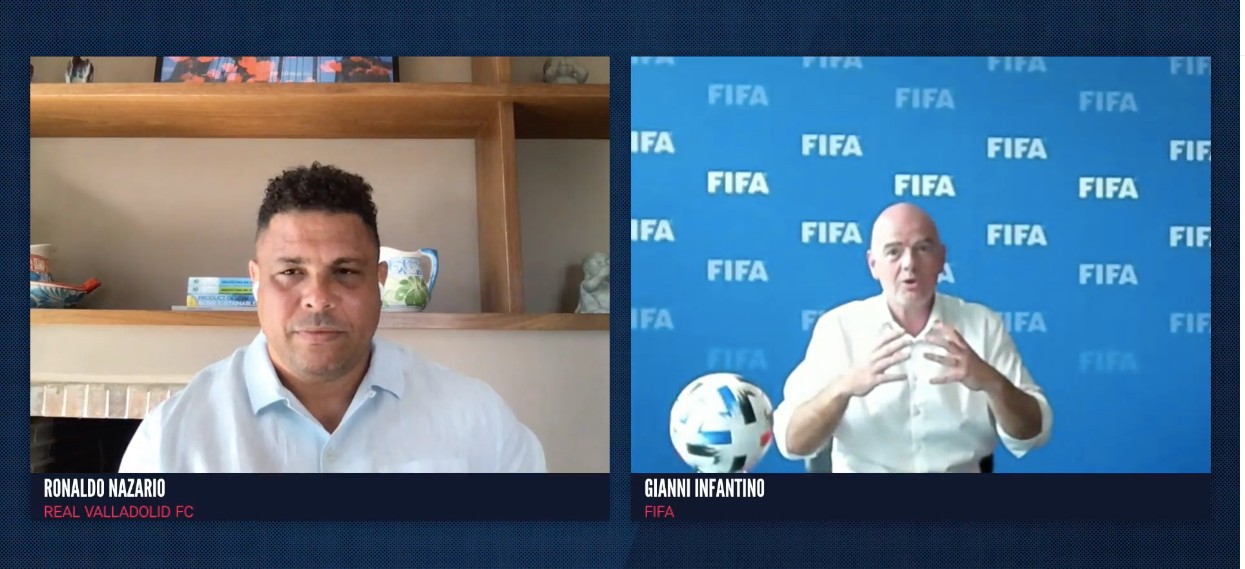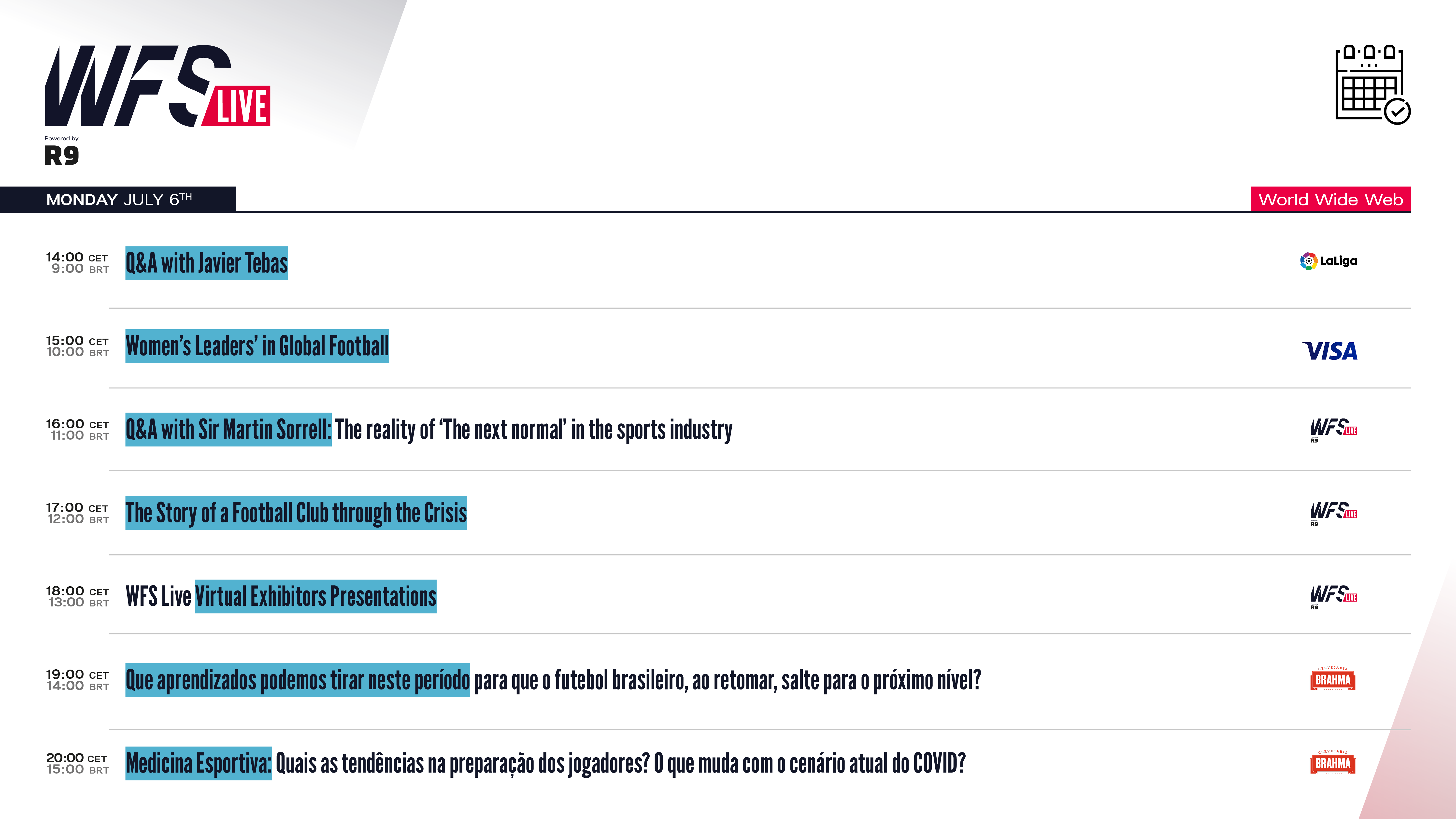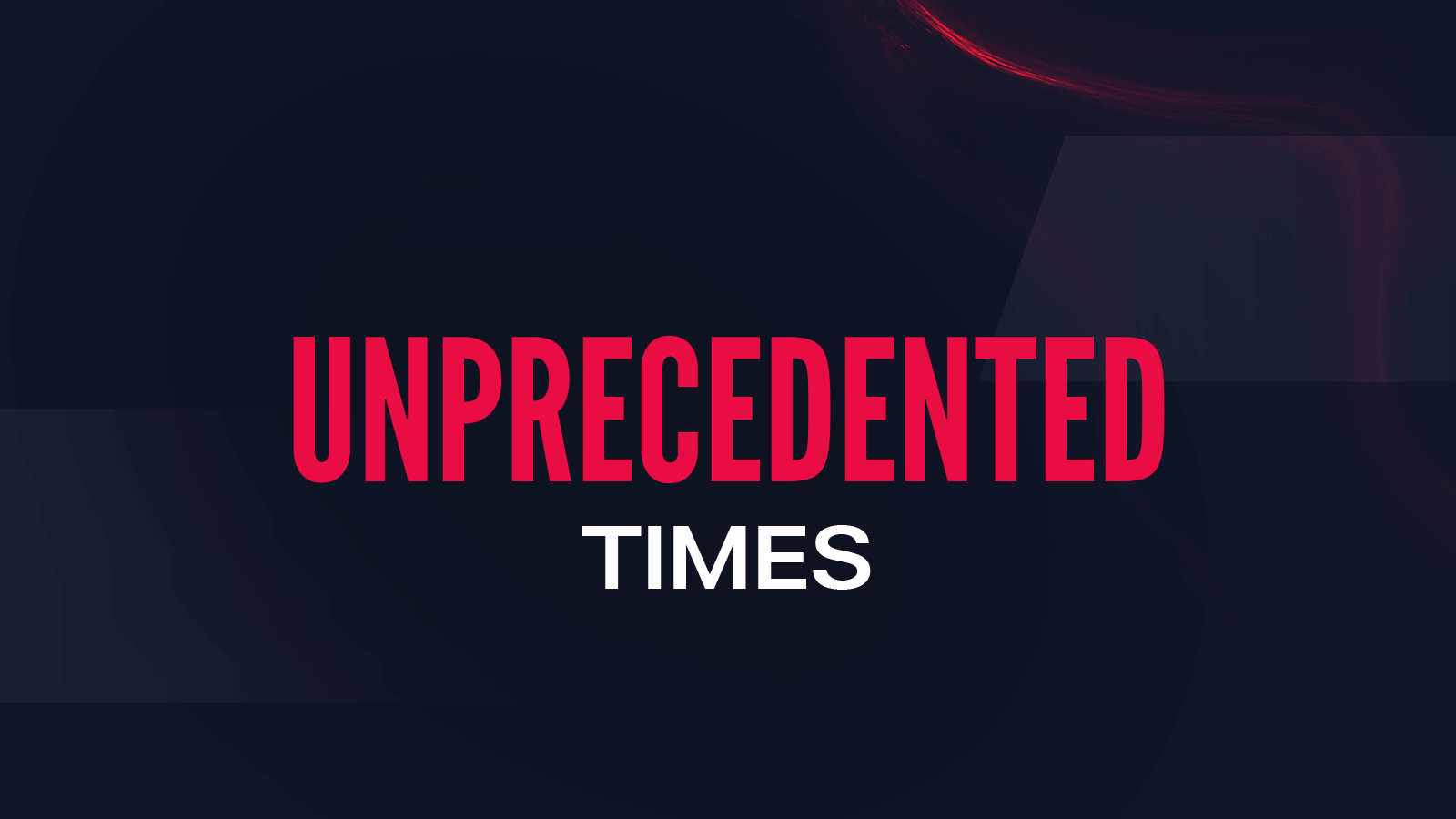FIFA President Gianni Infantino is keen to engage in dialogue with clubs and federations over the future of football’s calendar, a calendar that has already been completely shaken up by the Covid-19 pandemic. This is one of the main issues that Infantino addressed as he appeared in the closing session of WFS Live powered by Ronaldo, a Q&A which was hosted by Ronaldo himself.
The Brazilian legend asked the FIFA president about football’s calendar going forward and Infantino pointed out that it has already been shaken up due to the several months of inaction that the pandemic caused. Given that so many found the balance between club and national team matches problematic even before the crisis, now is the time for dialogue.
As Gianni Infantino said: “When you speak about it, you find out that nobody is really happy with the current international match calendar. You have national team games in September, October and November, then in March and then in June. You have players who have to travel halfway around the world back and forth for these games. I think it is time to speak about it.”
“It’s important to listen, to get input, to get opinions, to find the right balance,” he continued. “It’s important for us that we find the right balance between clubs and national teams. And not only a few clubs in Europe and a few national teams in Europe and Brazil and Argentina, but much wider than that. All over the world. We need to make sure that when we rethink our competitions at FIFA level, and also at national level, that we take the experiences we’ve had now with this crisis on board and we see how we can make football more impactful.”
“Nobody is really happy with the current international match calendar. You have players who have to travel halfway around the world back and forth for these games. I think it is time to speak about it.” – Gianni Infantino, FIFA President
The new-look FIFA Club World Cup will have a place in the new calendar, even if FIFA already agreed to move it from the summer 2021 slot. Ronaldo asked why not all in the football industry have been on board with the plans to revamp and expand this Club World Cup, and Infantino responded as so: “I don’t know why they’re afraid. Maybe because it would become the best club competition in the world very soon. I think it’s an example of something I’ve said before. When we decided to do the new Club World Cup, we decided at the same time to stop with the Confederations Cup and the current Club World Cup. I think we are the only sports body in the world that doesn’t just add, but that replaces and makes something that is more relevant and more interesting.”
Delving into the impacts of COVID-19 on the world of football, Infantino told Ronaldo about how FIFA is trying to help organisations around the world and how a relief fund of 1.5 billion dollars has been created. Even still, there are no one-size-fits-all solutions.
One of the repeated themes of the WFS Live week, which was held from July 6th to July 10th, was the issue of women’s football and how the impact of the coronavirus crisis could be even harsher for the women’s game. FIFA are aware of this, as Infantino explained.
“Women’s football is a top priority for FIFA and we have created a specific task force and working group to deal with questions about women’s football in this particular crisis,” he revealed. “We have committed 1 billion dollars from the next four years to be invested by FIFA in women’s football and, in spite of the crisis, we’ll continue with this investment of course. As part of our relief plan, we’ve invested in women’s football as well. So, I think we should not use coronavirus to put women’s football aside. On the contrary, we have to help women’s football even more because it has a bright future.”
“Maybe we should organise the Women’s World Cup every two years instead of every four years”, Ganni Infantino – FIFA President
Moving on to that future, Infantino suggested that the FIFA Women’s World Cup could become a biennial event. He said: “One idea that came in this period, and even before as well, is that maybe we should organise the Women’s World Cup every two years instead of every four years. For the next Women’s World Cup in 2023, we had a lot of interest around the world. We’ll go to Australia and New Zealand. Then, what happens next? Should we go to South America? Or maybe Europe or North America want to organise it again? Why not South America? Why not Africa? So, we need to see what we can do.”
The conversation between Ronaldo and Infantino concluded with some thoughts about football and footballers’ role in social movements, such as Black Lives Matter. Infantino explained that he is fully behind players voicing opinions on such matters, saying: “Players are people. So, for me, it’s normal and natural that they express their views. I’m definitely a defender of freedom of expression, always with respect and never with disrespect or with violence. But, whenever a football player is expressing their views or opinions in a respectful way or the right way then obviously this has to be welcomed because it has an impact in society and we want football to have a positive impact in society.”
Ronaldo completely agreed with that sentiment and called for education to play a role. As the Brazilian concluded: “The fight against racism is not just a fight for black people, it’s everybody’s fight. We have to fight it every day. Nobody is born racist, but somehow people learn to be racist. We have to fight to teach those who learn that when kids. But, it’s everybody’s fight.”
A selection of Gianni Infantino’s quotes :
On altering transfer market rules to allow players to finish 2019/20 with their current clubs:
“With different laws in different countries and with different interests in different countries, and also with different clubs, we had to find some reasonable and flexible rules and we amended our regulations on a temporary basis for this period for the transfers in order to, mainly, protect the integrity of the competitions. It’s important that if a player starts a competition with a club that they finish the competition with that club as well, or at least that we protect the integrity in the sense that this player cannot go on June 30th to play for another club in the same competition and play the last few matches there. Because this, of course, would not be fair from a sporting point of view.
On the busy schedule facing world football over the coming years:
“The Champions League will be finished at the end of August and then we’ll immediately have national team games and then the new season starts and then it ends with the Euros and the Copa America. Then we’re already into 2021/22 and then that’ll be the year of the World Cup. So, it’ll be a very right schedule for the next couple of years. We have to realise that the core of football is the players. I think some people in some management positions have forgotten that, certainly in the past and maybe some as well in the present. We have to realise that, at FIFA, we are here to make sure that the stage is set for the main actors, which are the players, to shine. We need to be very careful and very mindful about this, about the health of the players. For this reason, for example, I’m happy that the IFAB agreed with the proposal of FIFA for there to be five substitutions for this period.”
On holding matches behind closed doors:
“To watch these games without spectators is sad. It’s sad. Of course, it’s better than nothing, but… I was saying before that the players are the heart of the game, but the fans are the soul of the game. I think that without fans it’s like without players. It’s not really football. In this moment, it’s not possible because of health reasons. But, we need to work to have the fans back in the stadiums as soon as it’s possible from a health point of view.”
On FIFA’s role in education:
“There are many many topics that we can speak to children about through football and we can help in the education of children. So, FIFA is investing in the Football For Schools Programme 100 million dollars to give 700 million children around the world the possibility not only to play football, but mainly to have, through football, the possibility to learn a few skills which are important for their lives.”









